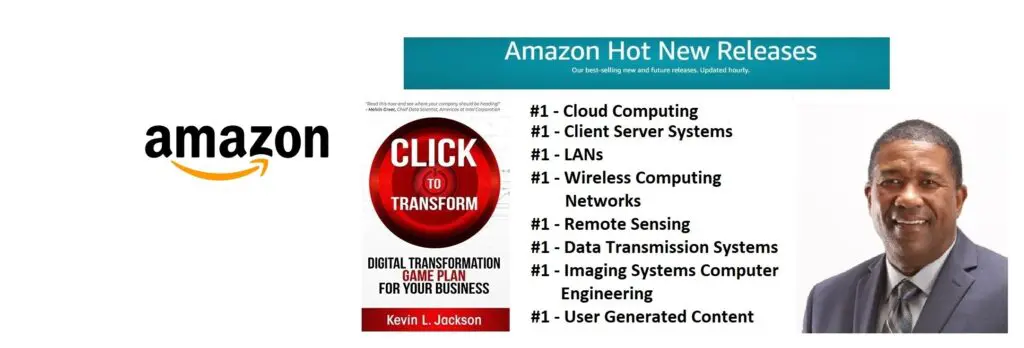Twitter Feed
SOA-R!! Another Hit !!
Yesterday’s SOA-R event coverage by TECH Bisnow Washington was yet another indication that cloud computing is real in the Federal space. Thanks goes to Mr. Dave Stegon from Bisnow on Business and Pauline Healy from Apptis. Thanks…
World Summit of Cloud Computing, December 1-2, 2008, Wohl Centre, Ramat Gan, Israel
I am proud to announce that I’ve been invited to speak at the “World Summit of Cloud Computing“, December 1-2, 2008, at the Wohl Centre in Ramat Gan, Israel. As…
MIT Survey: What A Response !!
We’ve been quite surprised by the number of survey responses we’ve received. THANK YOU !! That subset of the cloud computing community interested in national security and public sector applications…
Cloud Auction Business Model
The other day I talked about how cloud computing could change the government’s budgeting process. Well what about this! Last week, Google filed a patent application that describes a system…
Oracle: To Cloud or Not To Cloud …
First Oracle’s Larry Ellison bashes cloud computing as nothing but hype and then his company announces that it will let customers run Oracle 10g and 11g databases and its Fusion…
Capacity planning in a cloud environment
In her post “Cloud computing killed the capacity star“, Ivanka Menken brings up some good points. Just think what changes this could bring to the government budgeting process. The trends…
Cloud Databases
Joab Jackson, in his “Cloud computing leaving relational databases behind” article, makes some pretty interesting points on the incompatibility of relational databases with cloud-based infrastructures. He first list the various…
The 6 layers of the Cloud Computing Stack
From Sam Johnston’s Taxonomy post Clients (examples) are computer hardware and/or computer software which rely on The Cloud for application delivery, or which is specifically designed for delivery of cloud…
Thank You KMI Media Group
In this month’s Editor’s Perspective, Mr. Harrison Donnelly announced the new KMI Media Group collaborative effort. Military Information Technology will be using the blogosphere to get their government and industry…
VMware, Cisco and the Virtual Datacenter
Last week, VMware and Cisco announced their latest collaboration for the virtual datacenter of the future. The Cisco Nexus® 1000V distributed virtual software switch is expected to be an integrated…
4 Factors Driving Digital Transformation ROI
The critical assessment factors for cloud ROI risk probability are the following:
- Infrastructure utilization
- Speed of migration to cloud
- Ability to scale business/mission processes
- Quality delivered by the new cloud-based process
These four factors directly drive digital transformation ROI because they affect revenue, cost, and the time required to realize any investment return. Differences between actual and projected values in these metrics indicate a likely failure to achieve the desired goals.
Although business alignment is always a primary digital transformation drive, ROI remains a key decision component. This metric should, however, be addressed from multiple vantage points to include cloud workload utilization, workload size versus memory/processor distribution and the virtual hardware instance to physical asset ratio.
Value delivered through innovation should also be part of the business value calculation. Value can be delivered through operational cost reductions, optimization of resource capacity, and a reduced total cost of ownership. Business process time reductions, product quality improvements and customer experience enhancements are also useful outcomes.
Security Controls
Business/mission model changes can also introduce operational risk. Acceptance of these risk are based on executive risk tolerance. Their risk mitigation decisions result in the implementation of security controls. A control will restrict a list of possible actions down to what is allowed or permitted by the organization. Encryption, for example, can be used to restrict the unauthorized use of data.
The security control continuum extends over three categories:
- Management (administrative) controls: policies, standards, processes, procedures, and guidelines set by corporate administrative entities (i.e., executive to mid-level management)
- Operational (and physical) controls: operational security (execution of policies, standards and process, education, and awareness) and physical security (facility or infrastructure protection)
- Technical (logical) controls: Access controls, identification and authentication, authorization, confidentiality, integrity, availability, and non-repudiation
They also encompass the following types:
- Directive controls: often referred to as administrative controls, advise employees of the behavior expected of them during their interfaces with or use of information systems
- Preventive controls: include physical, administrative, and technical measures that preclude actions that violate policy or increase the risk to system resources
- Deterrent controls: use warnings and a description of related consequences to prevent security violations
- Compensating controls: Also called an alternative control, a mechanism that is put in place to address security requirements deemed impractical to implement
- Detective controls: Refer to the use of practices, processes, and tools that identify and possibly react to security violations
- Corrective controls: involves physical, administrative, and technical measures designed to react to a security-related incident in order to minimize the opportunity for an unwanted event to reoccur
- Recovery controls: restore the system or operation to a normal operating state once integrity or availability is compromised
The costs associated with the implementation of any security control should be weighed against the value gained from digital transformation business/mission process improvements.
Would you like to learn more about digital transformation innovation? Pick up a copy of my new book, Click to Transform!Â

Cloud Computing
- CPUcoin Expands CPU/GPU Power Sharing with Cudo Ventures Enterprise Network Partnership
- CPUcoin Expands CPU/GPU Power Sharing with Cudo Ventures Enterprise Network Partnership
- Route1 Announces Q2 2019 Financial Results
- CPUcoin Expands CPU/GPU Power Sharing with Cudo Ventures Enterprise Network Partnership
- ChannelAdvisor to Present at the D.A. Davidson 18th Annual Technology Conference
Cybersecurity
- Route1 Announces Q2 2019 Financial Results
- FIRST US BANCSHARES, INC. DECLARES CASH DIVIDEND
- Business Continuity Management Planning Solution Market is Expected to Grow ~ US$ 1.6 Bn by the end of 2029 - PMR
- Atos delivers Quantum-Learning-as-a-Service to Xofia to enable artificial intelligence solutions
- New Ares IoT Botnet discovered on Android OS based Set-Top Boxes
